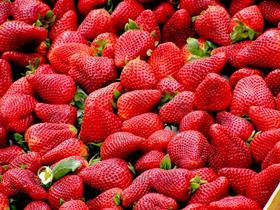
The British strawberry season is underway later than usual this year following some tricky weather conditions in the first half of 2018.
The cold start to the year, followed by the recent warm days and cooler nights, has resulted in slower ripening and a delayed start to the campaign.
Consequently, this year’s crop is likely to produce bigger, sweeter and juicer strawberries than in the last few years, according to British Summer Fruits, the industry body that represents 98 percent of berries supplied to UK supermarkets.
The organisation’s chairman Nick Marston said: “Berries not only taste great, but they also offer fantastic health benefits and should be enjoyed as part of any healthy diet.
“Innovations in our industry have meant that we are able to meet the growing consumer demand for berries so that people across the UK can enjoy them every day this summer.”
In the year to 25 April 2018 more than 137,000 tonnes of strawberries were sold in the UK, according to Kantar, with shoppers spending more than £608 million on the berry.
Total consumption of strawberries, raspberries, blackberries and blueberries has grown by an impressive 132 percent since 2007, outstripping the 49 percent increase of fruit consumption as a whole.
The steady rise in demand is down to an increase in the number of health-conscious shoppers, British Summer Fruits said, with consumers appreciating the nutritional benefits and low number of calories in soft fruit.
Soft fruit now accounts for 22 percent of all fruit sold in the UK, making berries as a whole the most popular fruit in shoppers’ baskets. The total value of the berry industry surpassed £1.2 billion in the 52 weeks to 25 April 2018, according to Kantar.






No comments yet